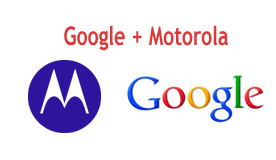
Internet giants are at war in Silicon Valley. In this instance, however, it isn’t a fight over the newest technologies, rather, some of the more outdated. Holding a patent legally guarantees that someone else cannot use your invention without just permission or payment. This idea seems fairly simple. Unfortunately, about a third of the patents distributed by the U.S. patent office are for technologies that already exist.
This creates a lot of confusion over which inventions have been spoken for and which are fair game. Because Silicon Valley is one of the most inventive areas in the world, the fight over technology has turned it into a patent litigation battleground.
Google is purchasing Motorola Mobility for $12.5 billion dollars. This move expands Google’s reach in several areas but possibly the most beneficial addition of Motorola to Google is the over 17,000 patents that Motorola previously owned (another 7,000 being in the works).
By snapping up the rights to these patents Google is not only securing exclusive technology for itself but they are also gaining power over some technologies that other companies use like 3G and 4G technologies.
Google can either stake their claim and try to restrict access of these technologies to other companies or dig deeper and try to litigate if a company is already using them. Considering that “the next big thing” is so critical for companies like Apple, Google and Microsoft to have, being able to force your competitors a few steps back could really bolster a company’s position on top.
Google may be able to pull the rug out of some of its competitors, namely, Apple Inc. who Motorola has successfully sued in the past using their patents as ammunition. However, this move by Google is as just defensive as it is offensive. Apple has been coming after Google too, in patent disputes over the Android Mobile Platform, something Google will further be protecting with Motorola’s added fortifications.
